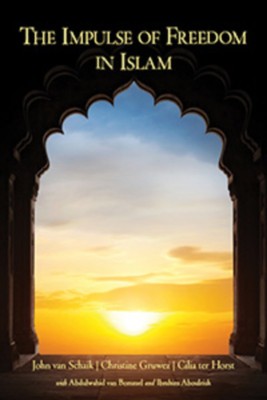
- We will send in 10–14 business days.
- Author: John Van Schaik
- Publisher: LINDISFARNE BOOKS
- Year: 2014
- Pages: 190
- ISBN-10: 1584201630
- ISBN-13: 9781584201632
- Format: 15.2 x 22.9 x 1.1 cm, minkšti viršeliai
- Language: English
- SAVE -10% with code: EXTRA
Reviews
Description
The word Islam means surrender to God. In our secular Western culture, it is difficult to imagine what that means. Among other things, it indicates dependence and predestination. But is this really the case? Isn't this a superficial presumption? Allah calls on human beings to surrender in freedom to their God (Sura 96). Allah is merciful and forgiving. At the same time, however, Allah is the all-seeing one and the one who humbles. In Islam, free will and predestination have an uneasy relationship with each other--but isn't this true for every religion?
In this collection of essays, three authors discuss various aspects of the tension between freedom and predestination in Islam from the perspective of Rudolf Steiner's works. This background enables them to throw sometimes surprising light on the freedom impulse of Islam. It is the authors' hope that this book may contribute to a more balanced view of Islam today.
This timely book offers interested non-Muslims a rare opportunity to examine a frequently misunderstood aspect of one of the world's fastest growing religions.
C O N T E N T S
Foreword - Abdulwahid van Bommel
Introduction - John van Schaik
Part 1 Islam in Historical and Theological Perspective - John van Schaik
1. Post-Colonial Image of Islam
2. History of Islam
3. Allah: Predestination or Freedom?
4. Jesus in Islam
Part 2 The Freedom Impulse of Mohammed Abduh and Rudolf Steiner - Cilia ter Horst
5. Background: Types of Freedom in Mohammed Abduh's Life
6. Between God and Nature: The Free Will of the Human Being According to Rudolf Steiner and Mohammed Abduh
Part 3 The Philosophy of Freedom in Iranian Islam - Christine Gruwez
7. Thinking in the Light of the Spirit: Elements from Iranian Philosophy
Part 4 Rudolf Steiner on Islam - John van Schaik
Afterword: Freedom in Islam Ibrahim Abouleish
Notes
EXTRA 10 % discount with code: EXTRA
The promotion ends in 23d.16:25:25
The discount code is valid when purchasing from 10 €. Discounts do not stack.
- Author: John Van Schaik
- Publisher: LINDISFARNE BOOKS
- Year: 2014
- Pages: 190
- ISBN-10: 1584201630
- ISBN-13: 9781584201632
- Format: 15.2 x 22.9 x 1.1 cm, minkšti viršeliai
- Language: English English
The word Islam means surrender to God. In our secular Western culture, it is difficult to imagine what that means. Among other things, it indicates dependence and predestination. But is this really the case? Isn't this a superficial presumption? Allah calls on human beings to surrender in freedom to their God (Sura 96). Allah is merciful and forgiving. At the same time, however, Allah is the all-seeing one and the one who humbles. In Islam, free will and predestination have an uneasy relationship with each other--but isn't this true for every religion?
In this collection of essays, three authors discuss various aspects of the tension between freedom and predestination in Islam from the perspective of Rudolf Steiner's works. This background enables them to throw sometimes surprising light on the freedom impulse of Islam. It is the authors' hope that this book may contribute to a more balanced view of Islam today.
This timely book offers interested non-Muslims a rare opportunity to examine a frequently misunderstood aspect of one of the world's fastest growing religions.
C O N T E N T S
Foreword - Abdulwahid van Bommel
Introduction - John van Schaik
Part 1 Islam in Historical and Theological Perspective - John van Schaik
1. Post-Colonial Image of Islam
2. History of Islam
3. Allah: Predestination or Freedom?
4. Jesus in Islam
Part 2 The Freedom Impulse of Mohammed Abduh and Rudolf Steiner - Cilia ter Horst
5. Background: Types of Freedom in Mohammed Abduh's Life
6. Between God and Nature: The Free Will of the Human Being According to Rudolf Steiner and Mohammed Abduh
Part 3 The Philosophy of Freedom in Iranian Islam - Christine Gruwez
7. Thinking in the Light of the Spirit: Elements from Iranian Philosophy
Part 4 Rudolf Steiner on Islam - John van Schaik
Afterword: Freedom in Islam Ibrahim Abouleish
Notes


Reviews